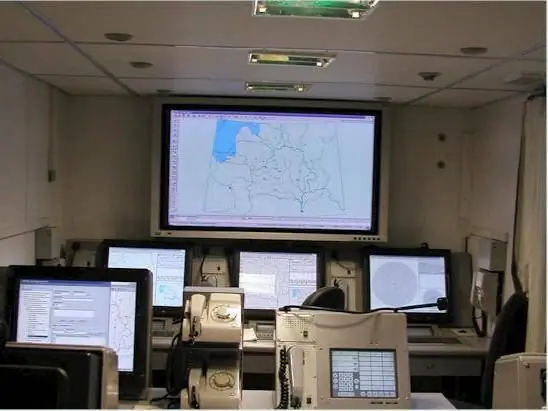- Author Matthew Elmers [email protected].
- Public 2023-12-16 21:49.
- Last modified 2025-01-24 09:17.
The Russian army sums up the results of combat training for 2010. As in previous years, the President of the Russian Federation and Supreme Commander-in-Chief Dmitry Medvedev are expected to attend the traditional November training camp for the leadership of the Armed Forces. Unlike in previous years, this should not happen in the General Staff building on Arbat, but at one of the training grounds of the 20th combined-arms army, where a fragment of the exercises of the 5th motorized rifle brigade using the Unified Tactical Control System (ESU TZ) will be demonstrated, writes “Independent newspaper.
A unified tactical echelon control system is one of the elements of network-centric methods of communication, reconnaissance and combat operations. That is, actions with the integrated use of weapons, electronic, satellite, aviation, navigation and other means.

The head of state spoke about the need to create such systems in May this year, visiting the troops in the Moscow region.
Command and control systems on the battlefield, similar to ESU TZ, have long been present in the armies of developed countries - the USA, Germany, France, etc. They were used by the US army and its allies in the war in Iraq, against Yugoslavia, and are now being used in Afghanistan. The Russian army, both in August 2008, repelling the aggression of Georgia against South Ossetia, and to this day, operating in the North Caucasus, is fighting in the old fashioned way. Our system, tied to the domestic global GLONASS system, has been created for about 10 years, but only this year it was tested first in March in the Airborne Forces near Pskov, and then in September-October at the training grounds of the newly created Western Military District in Alabino (Moscow region) and Mulino (Nizhny Novgorod region).
According to the general designer of ESU TZ Vadim Potapov, his brainchild is in a high degree of readiness. The system was positively assessed at the exercises by the Deputy Chief of the General Staff Colonel-General Valery Gerasimov and the Commander-in-Chief of the Ground Forces, Colonel General Alexander Postnikov. So, demonstrating the system to the president, Defense Minister Anatoly Serdyukov, it seems, may well report that the instructions of the head of state to complete the development of the ESU TK by 2010 have been fulfilled, the newspaper notes.
According to the same Vadim Potapov, in terms of the level of automation of combat control, "by 2015 we will not only catch up, but overtake, without catching up, the leading armies of the world." This, in his opinion, is due to the fact that all communication and combat control systems will be converted to digital, when, like in other countries, this process will stretch for more lengthy lines. The General Designer says that in the domestic tactical control systems, developers are already putting a picture of the battle in 3D on the monitor, indicating that "there is no such technology in the world's leading armies yet."
Meanwhile, the Russian command and the troops have questions about the ESU TK. Anatoly Serdyukov himself recently announced that his department will purchase domestic drones (which are elements of a tactical control system) only on the condition that the defense industry is able to produce vehicles that meet the requirements of modern combat. According to the military themselves, no decision has yet been made on which unmanned aerial vehicles will be adopted. Dmitry Medvedev set a task for the army until 2012 to replace all analog communications in the Armed Forces with digital ones. And the domestic defense industry plans to massively introduce ESU TK only by 2015.






